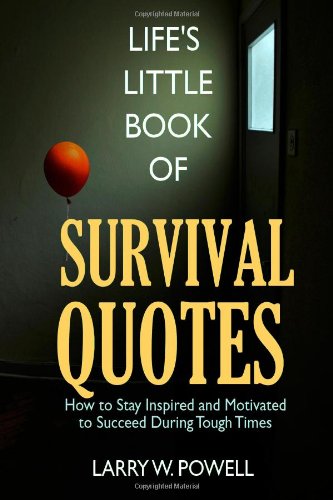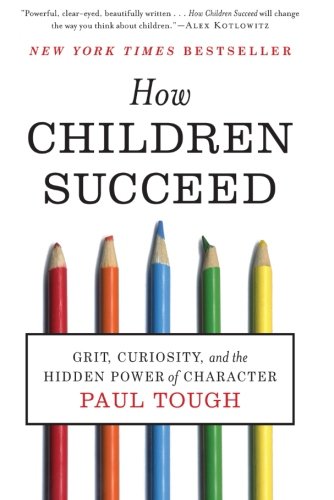
Do you sometimes feel like there’s no light at the end of the tunnel? Have the right words ever gotten you though a very tough day? Would you like to have the perfect words at your fingertips for just about any occasion or frame of mind? Do you want an extensive collection of quotes that are categorized into user-friendly sections? If you answer yes to any or all of the above, Life’s Little Book of Survival Quotes is the definitive collection of quotes, tips, affirmations, action steps and inspirational stories to help brighten your darkest days. It’s the constant companion that can lift your spirits and keep you hanging in there during your worst of times and even your best of times. Each category contains quotes and stories from famous (and infamous) and everyday people who have successfully overcome their struggles to prove that you too can enjoy a happier, healthier, and more prosperous life! These inspirational quotes were laboriously handpicked to help people who are facing all sorts of emotional, financial, spiritual and physical trials. Due to his own adversities he faced and overcame, Larry Powell wrote this book to show you there is victory over misfortune: “On September 11, 2001, a plane hit a building in New York City, then another, then another, and life changed forever. A tsunami of personal downfalls affected every part of my life. During the subsequent five years that followed 9-11 my marriage ended in divorce, my business failed due to halts in work from my affected clients, I lost my home to foreclosure, all my money, business associates and many people who I thought were close friends. A once confident, self-assured husband, father and businessman, my life was broken. I was left only with my faith in God, and all the words of the authors I’d been encouraged by over the years.” Hopefully by reading these quotes on a daily basis you’ll find options to overcome your own challenges so you too can realize a happier, healthier and more prosperous life! Examples of Quotes Categorized by Topic: Relationships “What seems to us as bitter trials are often blessings in disguise.” ~Oscar Wilde Hard Times/Struggle “Fall seven times, stand up eight.” ~Japanese Proverb Abuse/Break-Up “Storms make trees take deeper roots.” ~Dolly Parton Hurt/Shame “When there is no enemy within, the enemies outside cannot hurt you.” ~African Proverb Grief/Sorrow/Loss “He wept, and it felt as if the tears were cleansing him, as if his body needed to empty itself.” ~Lois Lowry Loneliness “Loneliness is the first thing which God’s eye named, not good.” ~John Milton Anger/Resentment “Let no man pull you low enough to hate him.” ~Martin Luther King Jr. Failure/Misfortune “Success is not final, failure is not fatal: it is the courage to continue that counts.” ~Winston Churchill Examples Tips You’ll Find in The Little Book of Survival Quotes: For Overcoming Adversity: 1. Trust Yourself: Believe that the power to do better is within you. 2. Work At It: Remind yourself that no matter how tough things are, they will get better if you work at overcoming your problems. 3. Tap Into Your Willpower: Reach deep inside yourself and push forward. 4. Make Wise Choices: Don’t let anyone stand in your way or convince you to do things you know you shouldn’t do. 5. Reach Out to Others: Turn to a person or organizations you trust for help and support. Sample Inspirational Story: Failure/Misfortune: J. K. Rowling: Her story is the perfect example that success can eventually come to anyone. Before the author of the Harry Potter book series became a success, she was a divorced mother living on welfare, going to school, and trying to write a novel in her spare time. At a Harvard commencement speech she said, “Had I really succeeded at anything else, I might never have found the determination to succeed in the one area where I truly belonged.”


